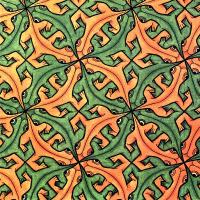メッセージ: 30
言語: English
kaŝperanto (プロフィールを表示) 2013年12月9日 16:25:07
I really like these by Epictetus, one of the great ancient Stoic philosophers:
“There is only one way to happiness and that is to cease worrying about things which are beyond the power or our will. ”I also quite like these from Marcus Aurelius (also a Stoic and among the best Roman Emperors):
“Wealth consists not in having great possessions, but in having few wants.”
“He who laughs at himself never runs out of things to laugh at.”
“Caretake this moment. Immerse yourself in its particulars. Respond to this person, this challenge, this deed. Quit evasions. Stop giving yourself needless trouble. It is time to really live; to fully inhabit the situation you happen to be in now.”
“It is impossible for a man to learn what he thinks he already knows.”
“Waste no more time arguing about what a good man should be. Be one.”
“It is not death that a man should fear, but he should fear never beginning to live.”
“I have often wondered how it is that every man loves himself more than all the rest of men, but yet sets less value on his own opinion of himself than on the opinion of others.”
“Live a good life. If there are gods and they are just, then they will not care how devout you have been, but will welcome you based on the virtues you have lived by. If there are gods, but unjust, then you should not want to worship them. If there are no gods, then you will be gone, but will have lived a noble life that will live on in the memories of your loved ones.”
“Everything we hear is an opinion, not a fact. Everything we see is a perspective, not the truth.”
erinja (プロフィールを表示) 2013年12月9日 16:37:57
kaŝperanto (プロフィールを表示) 2013年12月9日 16:52:52
erinja:This would be a great topic for the Esperanto forums, with the quotes translated into Esperanto.You're right; I will attempt the translations tonight.
jismith1989 (プロフィールを表示) 2013年12月9日 17:06:04
 Lucretius' Epicurean poem De Rerum Natura is good too.
Lucretius' Epicurean poem De Rerum Natura is good too.Also, when you make the Esperanto thread, if there are any quotations you want me to translate directly from the Latin (or Greek) just let me know and I'll give it a go, because the English translations you've got there seem a bit antiquated (e.g. "caretake this moment" ).
Of course, these kind of beliefs (e.g. "wealth consists not in having great possessions, but in having few wants" / "immerse yourself in the particulars" / "fully inhabit the situation you happen to be in now" ), similar to those of other traditions of the axial age, like Buddhist thought (and there was contact between ancient Indian and Greek thought), are also indicative of societies of great inequality and injustice. For most of human history, people I'm sure wouldn't have needed such wisdom!
kaŝperanto (プロフィールを表示) 2013年12月9日 17:30:48
jismith1989:I can't quote them all here, but Marcus Aurelius' Meditations are an eloquent and "digestible" source of Stoic thought too: http://en.wikiquote.org/wiki/Marcus_AureliusThanks, I might just take you up on that offer, as I know neither Greek nor Latin. I was initially fearful of translating from English anyway, due to the possible loss in double translation, as well as the antiquated phrases you mentioned.
Also, when you make the Esperanto thread, if there are any quotations you want me to translate directly from the Latin (or Greek) just let me know and I'll give it a go, because the English translations you've got there seem a bit antiquated (e.g. "caretake this moment" ).
Of course, these kind of beliefs (e.g. "wealth consists not in having great possessions, but in having few wants" / "immerse yourself in the particulars" / "fully inhabit the situation you happen to be in now" ), similar to those of other traditions of the axial age, like Buddhist thought, are also indicative of societies of great inequality and injustice. For most of human history, people I'm sure would have taken those ideas for granted!
Meditations is indeed a great study, but my favorite is the Enchiridion/Handbook by Epictetus. It definitely is an instruction manual for a better life, and quite the contrast from most philosophical works, especially classical ones.
I agree that these beliefs are from such societies. Even though we now live as gods compared to then, I would wager we are generally a much less happy people. We inhabit a world of 'first-world problems'. That's why I love the notion that even the Emperor himself held such beliefs. I would also say that injustice and inequality still abound to this day, possibly to just as large an extent.
I came upon Stoicism after reading the book "A Guide to the Good Life", by William B. Irvine. It attempts to be a modern Enchiridion of sorts.
kaŝperanto (プロフィールを表示) 2013年12月10日 17:34:16
Is it true that nobody else has favourite quotes..?
efilzeo (プロフィールを表示) 2013年12月10日 18:26:14
Nec pluribus impar (Louis XIV)= Not inferior to anyone (literally "not unequal to many" )
Virtute duce comite fortuna (Cicero) = With the virtue as a guide and fortune as a companion.
I consider the truth as the authority, not authority as the truth.
Se avvicini uno spillo ad un pallone gonfiato, lo spillo è piccolo, il pallone è grande. (Luigi Vallauri) = If you near a pin to a jerk, the pin is thin, the jerk is big. [hard to translate, because in Italian someone full of himself can be called "pallone gonfiato" (a balloon)]
jismith1989 (プロフィールを表示) 2013年12月10日 19:32:13
efilzeo:I consider the truth as the authority, not authority as the truth.Similarly, the quote from Roger Bacon:
Nam Plato dicit: "Amicus est Socrates, magister meus, sed magis est amica veritas."
Esperanto: Ĉar Plato diris: "Sokrato, mia majstro, estas amiko, sed pli amika estas vereco."
English: For Plato said: "Socrates, my master, is a friend, but more of a friend is truth."
(More often, but incorrectly, given just as amicus Plato, sed magis amica veritas. But that does make a nicer quote!)
captainzhang (プロフィールを表示) 2013年12月11日 17:07:56
My favorite quotes:
"If you would be a real seeker after truth, it is necessary that at least once in your life you doubt, as far as possible, all things." Descartes
"I can live with doubt, and uncertainty, and not knowing. I think it's much more interesting to live not knowing than to have answers which might be wrong." Feynman
"There must be no barriers to freedom of inquiry ... There is no place for dogma in science. The scientist is free, and must be free to ask any question, to doubt any assertion, to seek for any evidence, to correct any errors." Oppenheimer
jismith1989 (プロフィールを表示) 2013年12月11日 18:00:12
captainzhang:"There must be no barriers to freedom of inquiry ... There is no place for dogma in science. The scientist is free, and must be free to ask any question, to doubt any assertion, to seek for any evidence, to correct any errors." OppenheimerThe fact that he quoted from the Bhagavad Gita when the first atomic bomb was tested is pretty awesome too!
Oh, and I like this quote of Robert Oppenheimer's as well:
"The optimist thinks this is the best of all possible worlds. The pessimist fears it is true."

(Esperanto: La optimisto pensas ke tiu ĉi estas la plej bona el ĉiuj mondoj eblaj. La pesimisto ja timas tiel.)





